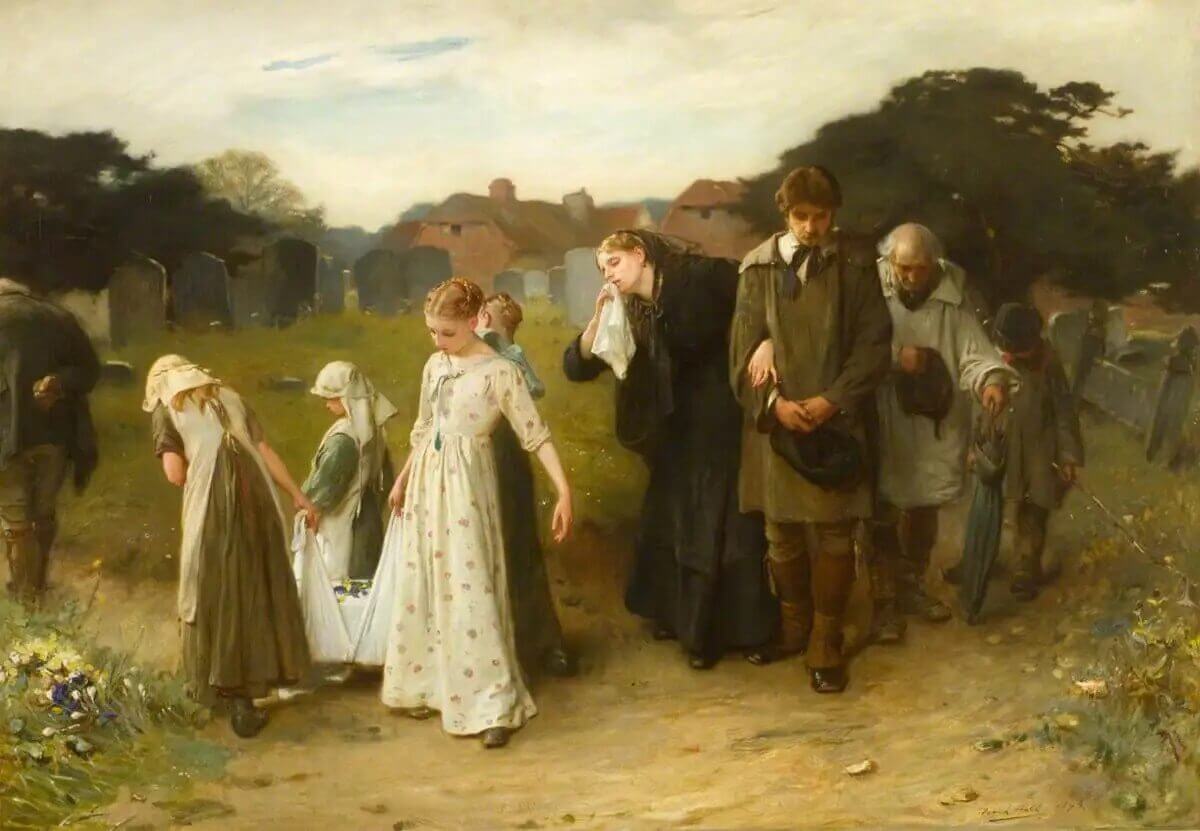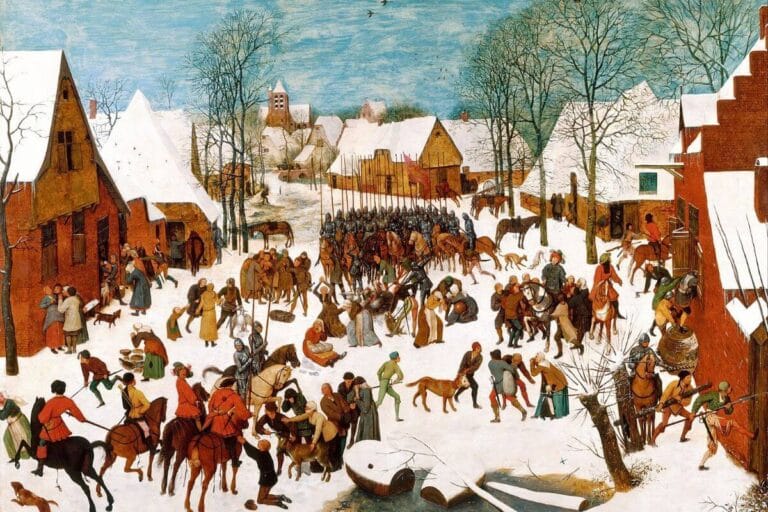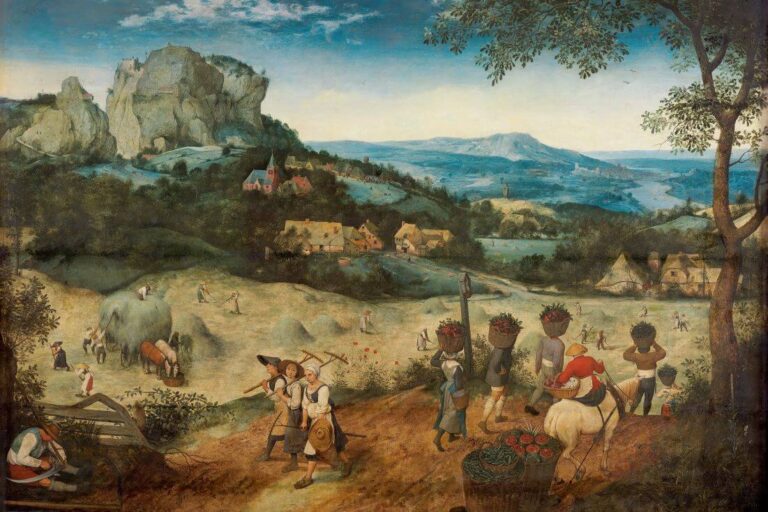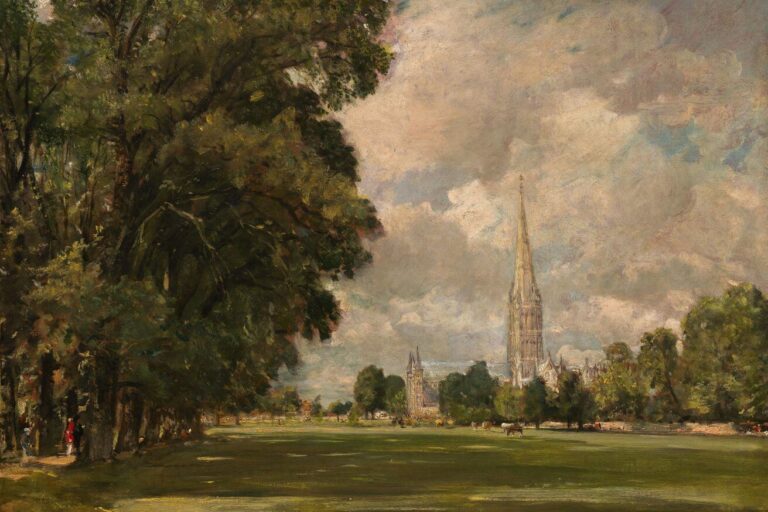Johann Sebastian Bach (1685-1750) today is mostly known for his vocal compositions, especially his cycle of cantatas. Like many German composers of the Baroque Period, Bach was employed by the church to write music for the weekly liturgy on Sunday. One of his oldest and most beautiful cantatas is Gottes Zeit ist die allerbeste Zeit. Musicologist and Bach scholar Alfred Dürr ranks it among Bach’s greatest works.
“The Actus Tragicus is a work of genius such as even great masters seldom achieve. Here in one stroke, the twenty-two-year-old composer left all his contemporaries far behind him. Of course, it could be argued that in later years Bach’s art became a great deal more mature, but it hardly grew more profound. The Actus Tragicus belongs to the great musical literature of the world.”
Alfred Dürr, The Cantatas of J.S. Bach, 759
The cantata, also known as the Actus Tragicus and catalogued as BWV 106, was composed by Bach in Mülhausen around 1707. It was undoubtedly intended for a funeral service, possibly for that of Adolph Strecken, Mülhausen’s former mayor. The text juxtaposes the earthly death of the Old Testament with the redemption of the New Testament. At the heart of the cantata lies the chorus ‘Es ist der alte Bund’, which combines the old view of the original sin with the new idea of salvation taught by Luther, moving from a crippling fear of death (Sterbensangst) to a joyous welcoming of eternal life (Todesfreudigkeit).

In the first half of the cantata, we are reminded in stern fashion that death is part of the old covenant with God. Against the backdrop of the central chorus, Es ist der alte Bund: Mensch, du musst sterben!, the soprano longs to be united with Christ in heaven, as if she is trying to resist the strickening idea of the original, again and again calling her redeemer: Ja, komm, Herr Jesu! This arioso is mesmerizing in its unending repetition of these simple words, attesting to the faithful’s eternal longing and unwavering conviction.
In the second half of the cantata, however, we are comforted that death is not the end: first by the faithful (alto), who commends her spirit to Jesus (In deine Hände befehl ich meinen Geist), for he has redeemed her (du hast mich erlöset), then affirmingly by Christ himself (bass), who sings that after death we will be united with him in paradise: Heute wirst du mit mir im Paradies sein. Of the whole cantata, it is this moment that touches me the most, at times moving me to tears, when the lively bass aria seamlessly flows over in the long lines of the alto singing the Lutheran chorale, rejoicing that death is not the end: Mit Fried und Freud ich fahr dahin in Gottes Willen, getrost ist mir mein Herz und Sinn, sanft und stille.
1. Sonatina
The cantata opens with an instrumental introduction, denoted by Bach as a sonatina. The two recorders with their sharp and sighing sounds symbolize the earthly suffering, while the viola da gamba’s represent eternal life with their heavenly and comforting sounds.
2. Chor
Gottes Zeit ist die allerbeste Zeit.
In ihm leben, weben und sind wir,
solange er will.
In ihm sterben wir zur rechten Zeit,
wenn er will.
God’s time is the very best time.
In him we live, move, and are,
as long as he wills.
In him we die at the proper time,
when he wills.
3. Arioso (Tenor)
Ach, Herr, lehre uns bedenken,
dass wir sterben müssen,
auf dass wir klug werden.
Ah, Lord, so that we may become wise,
teach us to ponder
that we must die.
4. Arie (Alt)
Bestelle dein Haus;
denn du wirst sterben
und nicht lebendig bleiben!
Set thy house in order:
for thou shalt die,
and not live.
5. Chor und arioso (Soprano)
Es ist der alte Bund:
Mensch, du musst sterben!
Ja, komm, Herr Jesu!
This is the ancient law:
man, thou must perish!
Even so, come, Lord Jesus, come!
6. Arie (Alt)
In deine Hände
befehl ich meinen Geist;
du hast mich erlöset,
Herr, du getreuer Gott.
Into Thine hand
I commit my spirit;
Thou hast redeemed me,
O Lord God of truth.
7. Arioso (Bass), Choral (Alt)
Heute wirst du mit mir
im Paradies sein.
Mit Fried und Freud ich fahr dahin
in Gottes Willen,
getrost ist mir mein Herz und Sinn,
sanft und stille.
Wie Gott mir verheissen hat:
der Tod ist mein Schlaf worden.
Today shalt Thou be with me
in paradise.
In peace and joy I now depart
according to God’s will,
I am consoled in heart and mind,
calm and quiet.
As God has promised me:
death has become my sleep.
8. Chor
Glorie, Lob, Ehr und Herrlichkeit
sei dir, Gott Vater und Sohn bereit’,
dem Heilgen Geist
mit Namen!
Die göttlich Kraft
mach uns sieghaft
durch Jesum Christum, amen.
Glory, laud, praise and majesty
to Thee, God, Father and Son be given,
the Holy Ghost
with these names!
May divine strength
make us triumph
through Jesus Christ, Amen.
Further Reading
The English translations of the cantata are by Daniel R. Melamed and Michael Marissen. While writing this article, I made extensive use of the Dutch website of Eduard von Hengel, who annotated all Bach cantatas, but I also consulted information provided by the Netherlands Bach Society for their beautiful All of Bach project. The enlightening interview below, with musicians who performed this cantata, is part of the same project.



